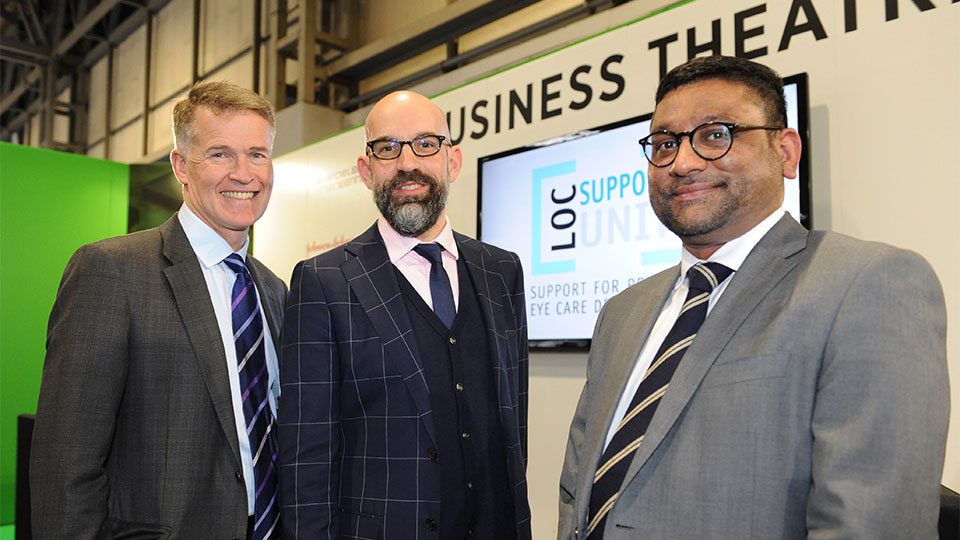- OT
- Professional support
- Health services
- National post-operative cataract care framework agreed
National post-operative cataract care framework agreed
A new partnership will see optometrists carrying out routine follow-up cataract appointments in practice

17 April 2018
The Local Optical Committee Support Unit (LOCSU) and Newmedica have partnered to deliver a national framework for post-operative cataract care.
The framework will see patients, who are referred to Newmedica for cataract surgery, returning to their optometrist for routine follow-up appointments for a set tariff.
Optometrists who have completed the LOCSU/Wales Optometry Postgraduate Education Centre cataract accreditation will be able to offer the service.
In a statement, chief operating officer of LOCSU, Richard Whittington, said the agreement will enable primary eye care companies and practices to offer effective care in a timely manner to patients in the community.
“It will also provide an opportunity to redesign local services with primary care being at the heart of delivery,” he explained.
Managing director of Newmedica, Darshak Shah, described the agreement as “a significant step forward in the redesign of local eye care services that will be of benefit to patients and to practitioners.”
An unusual model
The announcement was made at Optrafair during the Specsavers-sponsored session, The dream partnership – closing the gap between ophthalmology and optometry.
Speaking to OT at the event, Mr Shah highlighted that the UK currently has an unusual approach to ophthalmology and optometry services when compared to other countries.
“Where you have systems that are not so monolithic, things are done very differently. The way services are organised, whether it’s in terms of clinic process, use of staff or the way facilities are utilised, it’s different to the way it is done in the UK. Processes are much more efficient and patient-friendly, and clinicians’ time is used much more effectively,” he shared.
Highlighting some of the problems that may occur if optometry and ophthalmology services do not work more closely together, consultant ophthalmologist and clinical director at Newmedica, Nigel Kirkpatrick, explained to OT: “There is a risk of significant vision loss in sections of the disease population where patients are not going to get the care that they need.”
Clinical services director at Specsavers, Giles Edmonds, said that there are enough practising optometrists and ophthalmologists who can be “pulled together” as one resource to eliminate the doubling-up of services that currently exists.
Mr Kirkpatrick added: “Through a joined-up approach, the optometrist benefits by being able to deliver more eye care to patients within their practice, while being backed up by consultants, which means patients are not sitting in waiting rooms for long amounts of time and receiving fragmented care.”

Consistent processes
When asked about how this framework will change the way optometrists work, Mr Whittington said that practices will see more activity and be able to use the skills that they are accredited for.
“It means you can get a far greater level of follow up activity being delivered in primary care but also there’s consistent referral, IT and contractual processes, as well as remuneration for both the practice and primary eye care company being consistent nationally,” he shared.
Mr Whittington added that of the 330,000 cataract procedures a year, the majority of patients will be having follow up appointments.
“Imagine if we could, nationally, remove those follow-up appointments from trusts. That’s an awful lot of free capacity, which either the NHS will choose to take savings from, or carry out more appropriate work,” he said.
Mr Shah concluded: “Now that the framework is in place, affecting the relationships with contracts with local primary eye care companies is the next step. We need to deliver on our side of this, which is once we have patients referred for surgery, then those patients are having their follow up in practice.”

Comments (1)
You must be logged in to join the discussion. Log in
Anonymous19 April 2018
The title of the article is very misleading. This is not a national NHS framework but a national Specsavers owned Ophthalmology business that is working in partnership with LOCSU. It's not long since LOCSU lost to Specsavers in it's bid for the DVLA contract and now they are in partnership with Specsavers. This situation stinks!
Report Like 334